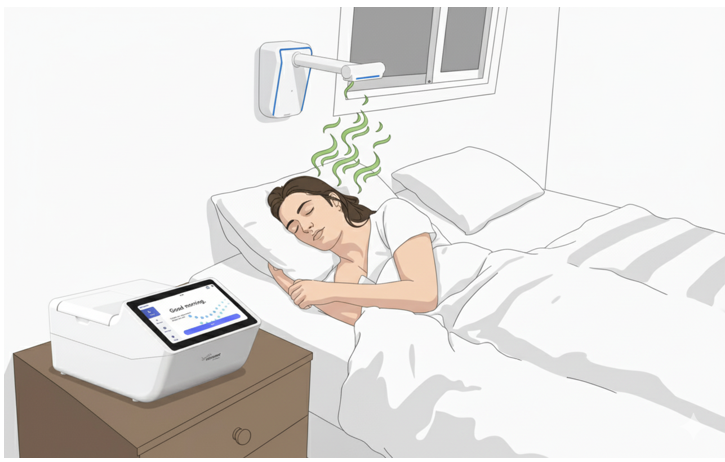Sleep bruxism, an involuntary grinding or clenching of the teeth during sleep, affects 8–31% of the population and often leads to dental damage, muscular pain, and headaches. Current treatments (e.g., mouth guards, physiotherapy, Botox) either protect teeth without addressing the cause or are invasive and have limited long-term efficacy. This technology provides a novel biofeedback system that detects bruxism episodes during sleep and delivers an immediate olfactory stimulus as an aversive cue. Because olfactory signals are processed unconsciously during sleep without disturbing sleep quality, this approach effectively reduces bruxism frequency in subsequent nights.
- Treatment of sleep bruxism in adults and adolescents
- Potential extension to other sleep-related motor disorders using olfactory biofeedback
- First olfactory-based biofeedback that can reduce bruxism without disrupting sleep
- Automatic detection & real-time response
- Home-use system
- Non-invasive and user-friendly

Proof-of-concept validated in pilot and home-based studies: two consecutive nights of olfactory feedback significantly reduced bruxism frequency in the following nights compared to controls.
.

Dr. Vered Pardo Yissar

